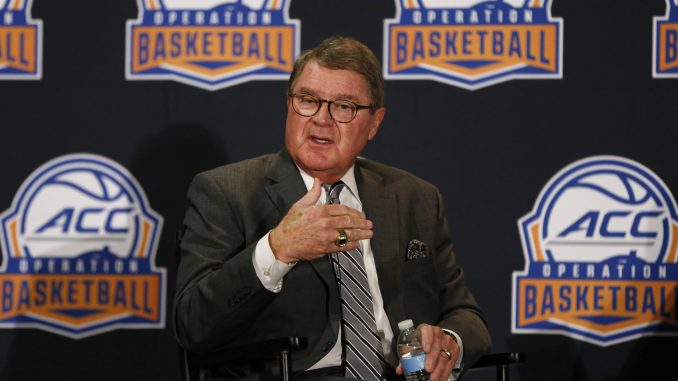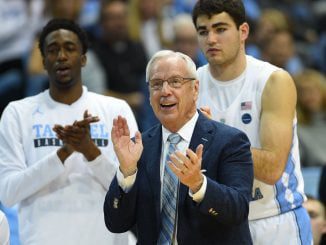
Brock Hoffman is a college football player from Statesville who transferred from Coastal Carolina to Virginia Tech last summer, primarily because he wanted to go to school closer to his ailing mother — who had recently had a brain tumor removed.
Because of the circumstances surrounding his decision, Hoffman petitioned the NCAA for a waiver that would have allowed him to play right away rather than having to sit out the 2019 season.
His request was denied.
No reason was given for the ruling since the NCAA — citing student privacy laws — does not publicly explain the reasons behind its waiver decisions.
But whatever it was, the decision was especially disappointing since according to statistics published by the Associated Press last August, 79 percent of all football waivers and 60 percent of men’s basketball waivers were approved during the 2017-18 academic year.
While Hoffman has to wait until this fall to play in an actual game for the Hokies after spending 2019 limited to practicing with the scout team, future players in similar situations could potentially be spared uncertainty of the NCAA’s waiver process.
On Monday, the ACC became the second Power 5 to endorse a proposal that would allow undergraduate athletes in all sports to transfer once during their five years of eligibility without having to sit out a season.
The proposal was originally made by the Big Ten and would eliminate the need for waivers and case-by-case decisions in football, men’s basketball, women’s basketball, baseball and hockey. Athletes that have already received their undergraduate degrees and those in all other sports are already allowed to transfer without restriction.
“During the league’s annual winter meetings (Feb. 12-14), the ACC discussed the transfer environment and unanimously concluded that as a matter of principle we support a one-time transfer opportunity for all student-athletes regardless of sport,” the conference said in a statement. “As a conference, we look forward to continuing the discussion nationally.”
The proposal is expected to be considered as soon as this spring with the goal of having it approved in time to be implemented in time for the 2020-21 academic year.
According to a release issued by the NCAA on Tuesday, a Transfer Waiver Working Group will seek feedback on the potential rule change from Division I members through athlete representatives, conference officials, coaches associations and other college athletic professional organizations before its next meeting in April.
“The current system is unsustainable,” working group chairman Jon Steinbrecher, commissioner of the Mid-American Conference, said in the statement. “Working Group members believe it’s time to bring our transfer rules more in line with today’s college landscape. This concept provides a uniform approach that is understandable, predictable and objective. Most importantly, it benefits students.”
As much as it is intended for the benefit of those students, some coaches and athletic directors worry that if the one-year waiting period for transfers is abolished, it could lead to the nation’s strongest teams poaching talent away from lesser programs or Power 5 teams using Group of Six schools such as East Carolina, Appalachian State and NC A&T as their farm clubs.
Still, there appears to be growing support for the proposal.
NC State basketball coach Kevin Keatts said he’s ambivalent about the possible rule change — as long as it’s administered equally and fairly.
“I’ve always felt like it would be something that should, if they figure out how to do it,” said Keatts, who has relied heavily on transfers during his three seasons with the Wolfpack. “It can get a little chaotic. What does it mean? What does it look like? I don’t think we have a clear understanding of who can transfer or when you can transfer.
“We’ve been talking about it for years. Are you going to add a GPA to it? Are you just going to let them go one time and let them transfer? I’m one of those guys that if everybody’s doing the same thing, I’m OK with it. But what happens is, when you do the one-time thing, there’s always waivers for different situations. And the one time may turn into 2-3 different times. It’s a tough thing.”
Tony Bennett of defending national champion Virginia is a coach that says he likes the current system, though — like his ACC counterpart Keatts — he’s inclined to wait until specifics of the proposal are announced before passing judgment on it.
“It’s probably best to just wait and see what really happens, but it’s certainly helped our guys in the past, those years out,” Bennett said Monday on the ACC’s weekly coaches teleconference. “Every program builds their team differently, and so for us, it’s been advantageous to have guys develop their skills, their games, their maturity, their strength, and when it’s their time they come ready to play.
“It doesn’t mean you can’t obviously redshirt guys, but that’s been a positive for us for the most part, especially with transfers.”


